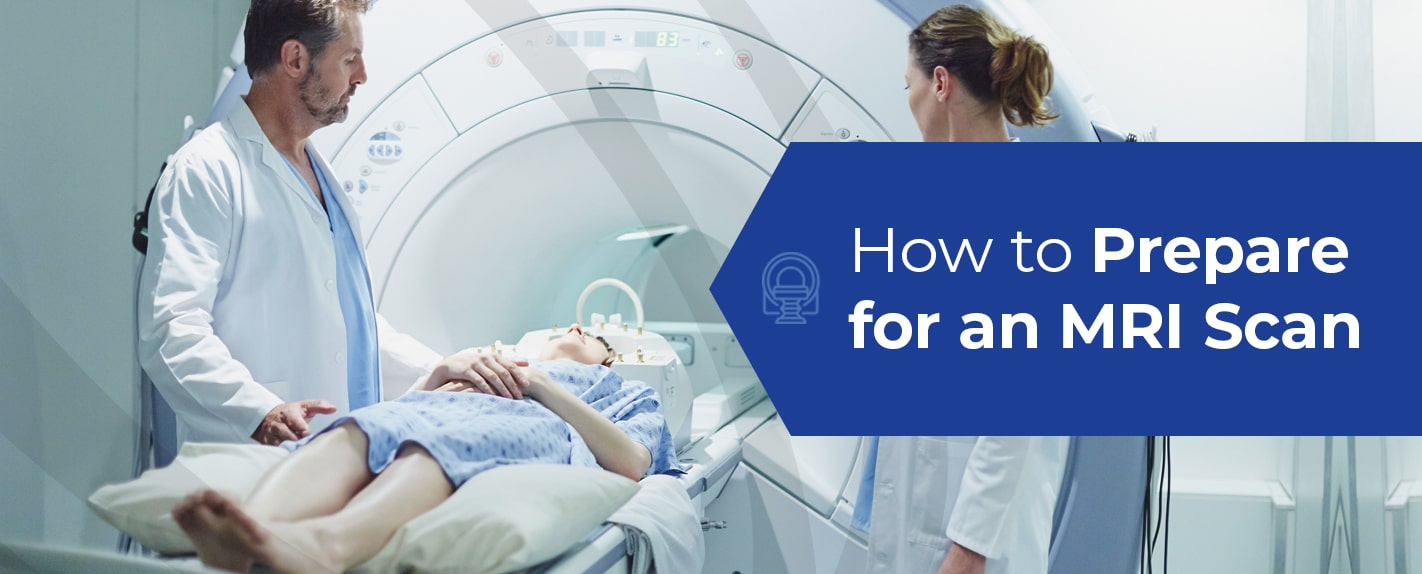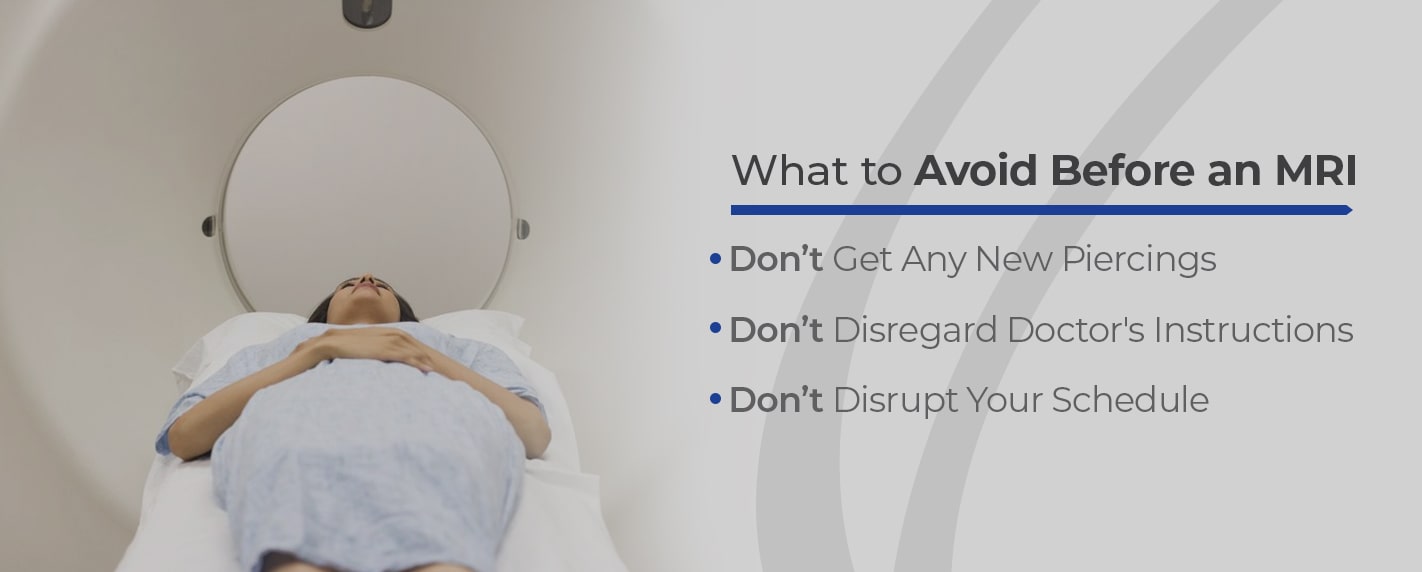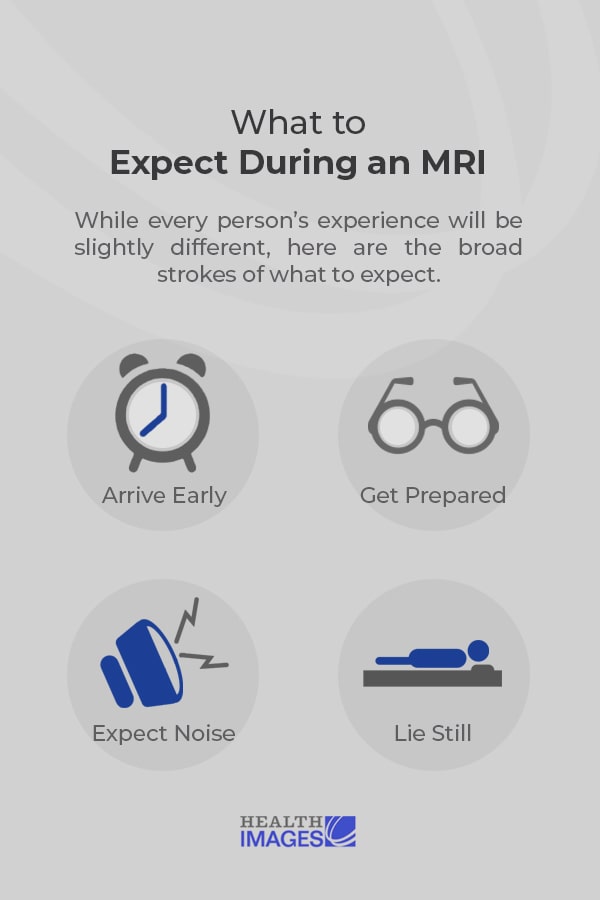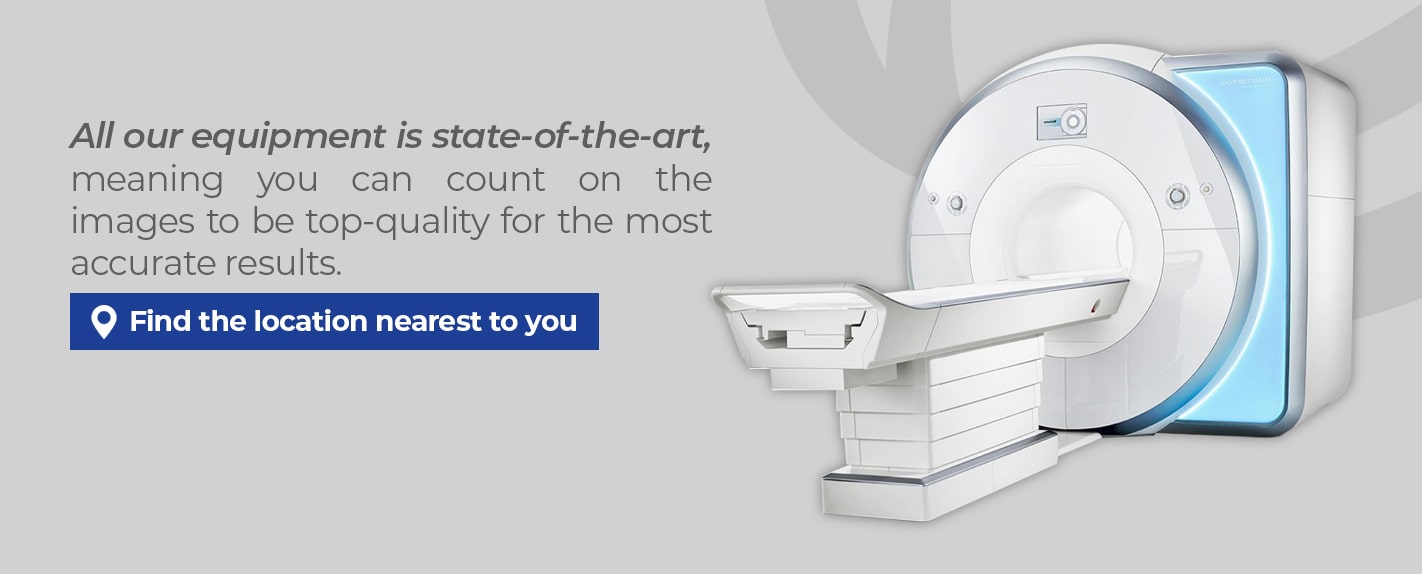How to Prepare for an MRI Scan
No one looks forward to getting an MRI scan. For many of us, hearing the news that our doctors have recommended we get an MRI done is scary news. Our palms begin to sweat, our hands might shake and our minds immediately start to fill with dread as we anticipate what’s to come.
If your doctor has recommended you get an MRI, you might have experienced a reaction just like this one. It’s essential to realize this is a typical response, and you’re certainly not the only one to have it. It’s also important to recognize that, while the anticipation of this scan can be scary, the process itself is far less frightening than you might be imagining. The process is entirely painless and requires nothing more from you than to remain still for a little while.
Of course, telling yourself not to be nervous is one thing. Actually doing it is quite another. To help you gain the confidence you need to approach your MRI with as little nervousness as possible. We want to prepare you by telling you what to expect. We’ll walk you through the process of how to get ready for an MRI, what the experience itself will be like and what to avoid before, during and after. By arming yourself with this knowledge, you’ll be that much more prepared to face this MRI with confidence.
What Is an MRI?
Most of us will only ever hear the MRI referred to by its abbreviation, but its full name tells us much more about what to expect. MRI stands for magnetic resonance imaging. As the name suggests, this is a test that uses radio waves and powerful magnets to take a scan of what’s going on inside your body, which it then sends to a computer for the doctors to look at. These images lend critical information about things that might be going on in different parts of your body without having to perform an invasive procedure.
You might need to get an MRI done if you’ve been experiencing symptoms and the doctor is working to diagnose you. To help figure out the problem, they’ll need detailed images of your insides. They can then use this information to figure out what might be the problem. Additionally, if you’re already receiving treatment for an illness or injury, doctors might use an MRI to determine how well the treatment is working and how your body is recovering.
While X-rays and CT scans are other ways to view the inside of your body, the benefit of an MRI is that it doesn’t expose you to any ionizing radiation. That makes MRIs a safer and more sustainable way to diagnose and treat ailments. The process is entirely painless, and while it can be nerve-wracking for the patient, it is entirely non-invasive. The only thing you have to do is keep still while the MRI machine takes pictures of your insides.
How to Prepare Before an MRI
Has your doctor scheduled you for an MRI or recommended one in your near future? If so, take a deep breath. There’s no need to panic. If you’re feeling nervous, try to instead channel that energy into preparing for your upcoming scan. Here’s what to do before an MRI.
1. Let Your Doctor Know If You Have Claustrophobia
For the duration of the MRI, you will be lying in an enclosed tube-shaped machine. While the length of time you’ll spend in there will vary, it could be as long as an hour. If you’ve ever dealt with claustrophobia, you may find this causes you a great deal of anxiety. To better cope with the process, talk to your doctor ahead of time and explain your concerns, as well as your history with claustrophobia. They may be able to prescribe a medication you can take before the procedure starts, which will help you stay calm during the MRI.X-ray
2. Leave Your Jewelry at Home
Wearing metal is one of the top items on the list of what not to do before an MRI. Because an MRI is essentially a giant magnet, the MRI techs will ask you to remove any metal items from your person before entering the machine, including any jewelry you may be wearing. If you’re wearing inexpensive pieces, this may not be cause for concern. If, however, this means removing expensive pieces of jewelry that aren’t easy to replace, it may be best to leave these at home altogether. While it’s unlikely anything will happen to them during your scan, it’s always better to be safe than to risk losing them.
3. Be Honest With Your Doctor
Certain conditions may require modifying the MRI procedure. In particular, any metal implants anywhere in the body can be problematic, since the scan is essentially a giant magnet. Some specific concerns to be aware of include:
- A history of kidney problems
- A history of diabetes
- Pregnancy
- A pacemaker
- An implanted drug infusion device like an insulin pump
- Past shrapnel or bullet wounds
- Cochlear implants
Your doctor will run through an extensive list of conditions such as these to make sure it’s safe to perform the MRI. It’s important to be up-front and honest with them, since misrepresenting any aspect of your health could lead to problems with the scan. A discussion of your medical history is perhaps the most crucial part of MRI prep.
What to Avoid Before an MRI
Now that you know a bit about how to prepare for an upcoming MRI, let’s look at the opposite side of things. What should you not do before getting an MRI? Here are a few of the top priorities to be aware of.
1. Don’t Get Any New Piercings
When you go in for your MRI, you’ll need to remove any body piercings or earrings. That isn’t a problem for healed piercings, but if a piercing is still very new and hasn’t yet healed, it could quickly begin to close up in the time the MRI takes. To avoid losing a piercing, avoid getting any new ones in the weeks leading up to your MRI.
2. Don’t Disregard Doctor’s Instructions
If the doctor tells you to avoid certain foods or to try a different diet before your MRI, be sure to follow their advice. Similarly, if the doctor asks you to exercise more, take a new medication, stop an old medication or in any way change your routine, do as they say. That will help ensure your MRI goes as smoothly as possible and produces accurate results that help the doctors treat you as well as they can.
3. Don’t Disrupt Your Schedule
If your doctor prescribes any changes as part of your MRI scan preparation, it’s essential to follow them. If you don’t receive specific instructions, however, try to maintain as normal a schedule as possible in the days and weeks before the scan. Continue any medications as you usually would, and don’t stop participating in any ordinary activities. By maintaining your usual lifestyle, you help ensure the scan is as accurate as possible, and that disruptions in your habits don’t lead to misleading results.
What to Expect During an MRI
It’s common to feel nervous before an MRI. It’s nothing to be embarrassed about. The best way to help dispel some of this worry is to have a clear idea of what to expect on the day of the exam. While every person’s experience will be slightly different, here are the broad strokes of what to expect when getting an mri.
1. Arrive Early
When the day of the MRI finally comes, you’ll want to get there early. If at all possible, try to arrive at least half an hour before the scheduled start time, to make sure you have time to fill out the correct forms. Bring a book, a magazine or something to occupy yourself with while you wait for the doctor, since staring at the clock and waiting will only make you anxious.
2. Get Prepared
Once the technologist calls you in and you’ve completed any necessary paperwork, you’ll change into a hospital gown. You’ll need to remove any metal items, including most notably jewelry, but also glasses, hairpins, dentures, hearing aids and even bras with underwires. The office will provide a secure place for you to store your belongings, and someone will then guide you into the room with the MRI machine.
The machine itself looks like a long metal tube with a hole at one end. A bed-shaped table slides out from the hole at the end of the tube, which you will lie on. This table then slides up into the tube, which is where the scan takes place.
In some cases, the doctors may decide it’s necessary to use a contrast dye to better highlight certain aspects of the body in the scan. If the doctors need to administer this dye in your case, it will be through an IV, usually inserted in the upper arm.
3. Expect Noise
MRI machines are noisy. It isn’t the most pleasant aspect of the experience, but it’s also an unavoidable one. While you’re lying in the scanner, you’ll hear loud thumping and pulsing noises as the machine does its work. Some people find the noise isn’t very troublesome, while others dislike it. Due to the loud noises created by the MRI machine, you will be provided hearing protection (ear plugs or headphones) to lessen the noise.
4. Lie Still
During the scan itself, your job is to lie still while the MRI machine does its job. The length of the scan will vary, but it’s best to expect anywhere from 15 minutes to 45 minutes for each body part that needs scanning. You’ll be able to hear and talk to the technologist in the other room the entire time. They may occasionally ask you to perform a small movement such as wiggling your fingers, or ask you basic questions. Try to complete their requests with as little additional movement as possible.
If at any point you become distressed or need to communicate anything to the doctor, remember they can hear you. While it’s best not to talk the entire length of the MRI, it’s essential to voice any concerns as they arise. Certainly, you should let the doctors know if you’re experiencing any discomfort or distress.
The key to succeeding in an MRI is to relax as much as possible. Try to keep your body still and lax, without carrying tension anywhere. You might let your mind wander and try to focus on something pleasant. By lying still, breathing deeply and letting your thoughts drift, the procedure will be over before you know it.
What to Expect After an MRI
Once your MRI is over, you’ll probably want to breathe a sigh of relief. The part that was likely causing you stress is over, and now you can relax. Just as it was important to know what to expect going into the MRI, however, it’s also a good idea to have a clue what to expect immediately following your MRI. This way, you’ll know and won’t be caught off guard by anything unexpected.
Just a few of the things to note following your MRI include:
1. Securing a Ride Home
If your doctor gave you any medication or sedatives to help ease the claustrophobia of being in the MRI machines, it won’t be safe for you to drive yourself home. The medication will either still be in effect or it may be beginning to wear off, but either way, you will not be alert enough to get yourself home safely. Plan for this ahead of time by having someone either come with you or asking someone to pick you up once the procedure is complete.
If the sedative wasn’t part of the plan or you forgot to secure a ride beforehand, don’t attempt to drive yourself home anyway. Call someone and wait for them to come get you.
2. Watching for Allergic Reactions
It’s uncommon for patients to have allergic reactions to the contrast dye, but it isn’t impossible. If your doctors used this dye for your MRI, be sure to watch for the signs of an allergic reaction in the hours following your procedure. Just a few of the symptoms to watch for include:
- Hives
- Rash
- Itchiness
- Shortness of breath
If you experience any of these symptoms, call your doctor or the imaging center where you had your MRI and report your concerns. If the reaction is severe, call 911 or head to an emergency room for treatment.
Schedule Your MRI Today
Once you know what to expect before, during and after an MRI, the process becomes much less intimidating. Not only is it painless and virtually risk-free, it also gives doctors invaluable insight into what may be going on inside your body. This step is often necessary to either diagnose an ailment or to assess how well a current treatment is progressing.
Has your doctor recommended you go for an MRI? If so, there’s no reason to wait. If you live in or around the Denver area, don’t hesitate to schedule your appointment here at Health Images. All our equipment is state-of-the-art, meaning you can count on the images to be top-quality for the most accurate results. And with over a dozen locations scattered across the area, there’s always an office near you for convenient and accessible care.
So don’t wait. Find the location nearest to you and give us a call. Our caring and friendly team members will be back to you as quickly as possible.
Sources:
- https://www.webmd.com/a-to-z-guides/what-is-a-mri#1
- https://www.healthimages.com/locations/
- https://insights.gehealthcare.com/medical-imaging/how-to-prepare-for-an-mri/
- https://www.mayoclinic.org/tests-procedures/mri/about/pac-20384768








